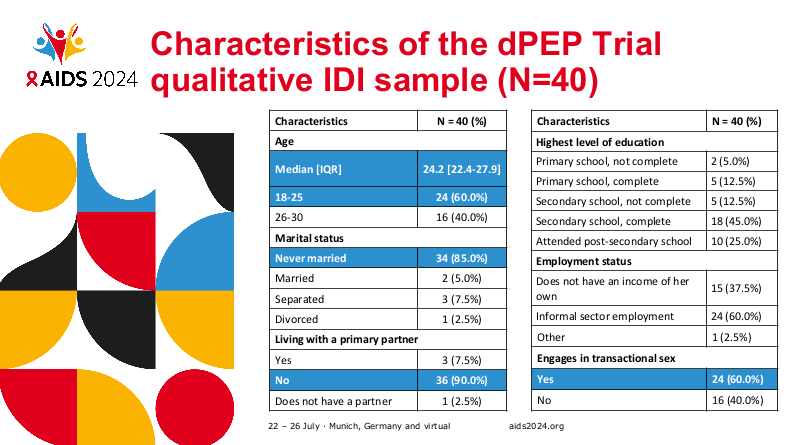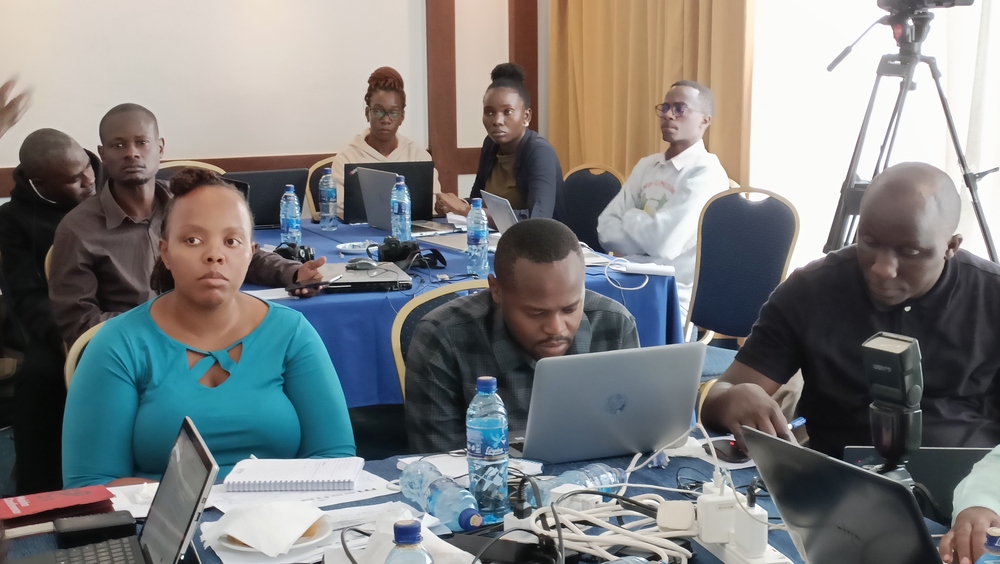By Christine Ochogo | christawine@yahoo.com
A recent study has revealed that doxycycline post-exposure prophylaxis (dPEP), often likened to a “morning-after pill” for preventing sexually transmitted infections (STIs), has not achieved the anticipated reduction in STI rates among cisgender women in Kenya.
Conducted through a collaboration between researchers from the Kenya Medical Research Institute (KEMRI) and the University of Washington, the dPEP Kenya Trial explored the potential of doxycycline to curb bacterial STIs in a high-risk population of young women.
The trial involved 449 women aged 18-30, who were on HIV PrEP in Kisumu County, Kenya. Participants were randomly assigned either to take doxycycline within 72 hours of unprotected sex or receive the standard of care for STI prevention.
Findings from the trial presented at the conference for retroviruses and opportunistic infections (CROI) 2023 and AIDS 2024, revealed that effectiveness was significantly hindered by low adherence. The findings from the qualitative arm, presented at AIDS 2024 conference under the title “Understanding Barriers and Facilitators to Doxycycline Post-Exposure Prophylaxis (dPEP) Adherence among Young Women in Western Kenya,” highlighted that poor adherence was a major obstacle to the success of dPEP among cisgender women.
The women in the Kenyan study often struggled with stigma, routine disruptions, privacy concerns, and the influence of their partners, all of which impacted their ability to take the antibiotic consistently. Additionally, side effects such as feeling like vomiting, stomach pain, and headaches may have contributed to the low adherence.
Hair drug testing, used in the study to verify adherence, confirmed that some participants were not consistently taking doxycycline. This finding was echoed by Mr. Benn Kwach, a researcher at KEMRI, who presented the qualitative results at the AIDS 2024 conference.

He noted that while doxycycline is inexpensive, widely available, and has a strong safety profile from other uses, its effectiveness for STI prevention in women could only be realised if adherence is improved.
“The efficacy of dPEP has been established in other studies, such as the French IPERGAY trial, where it significantly reduced STI rates among MSM. However, in our trial, the low adherence rates among cisgender women in Kenya compromised the expected outcomes,” Kwach explained during a training held for MESHA journalists in September.
For context, the IPERGAY trial in France demonstrated that MSM who took doxycycline after sexual encounters had a 47% lower chance of contracting bacterial STIs, with even more significant reductions for chlamydia (70%) and syphilis (73%). While these results suggested doxycycline’s potential effectiveness for high-risk populations, the use is not yet known with regular use that it can be effective in cisgender women.
In a study statement in 2023 after the release of the dPEP Kenya initial findings at the CROI 2023 in Seattle, Prof Elizabeth Bukusi, a Principal Investigator of the dPEP Kenya Study and Senior Principal Clinical Research Scientist at the Kenya Medical Research Institute and Professor at University of Washington in Departments of Global Health and Ob/Gyn, specified that to combat these barriers however, there is need to understand both barriers and facilitators as it is crucial in developing effective drugs and adherence for success.
“The results from the study are deeply disappointing, and we are committed to understanding why doxycycline PEP wasn’t taken. We are actively working to find ways to support adherence that will work for and can be used by women,” said Prof. Elizabeth Bukusi.

The findings from the dPEP Kenya trial underscore the importance of tailoring STI prevention strategies to different populations. While doxycycline post-exposure prophylaxis has shown promise in reducing bacterial STIs among MSM, its success among women in Africa remains contingent on overcoming adherence challenges.
Bacterial STIs among women can lead to serious long-term consequences, including pelvic inflammatory disease, infertility, chronic pain, and increased susceptibility to HIV. Improving dPEP adherence in high-risk populations like young women in Kenya is crucial in mitigating these risks and enhancing the overall effectiveness of STI prevention efforts. More studies are ongoing targeting interventions to support adherence among women, critical for realizing its full potential in reducing STI rates in Kenya and beyond.









